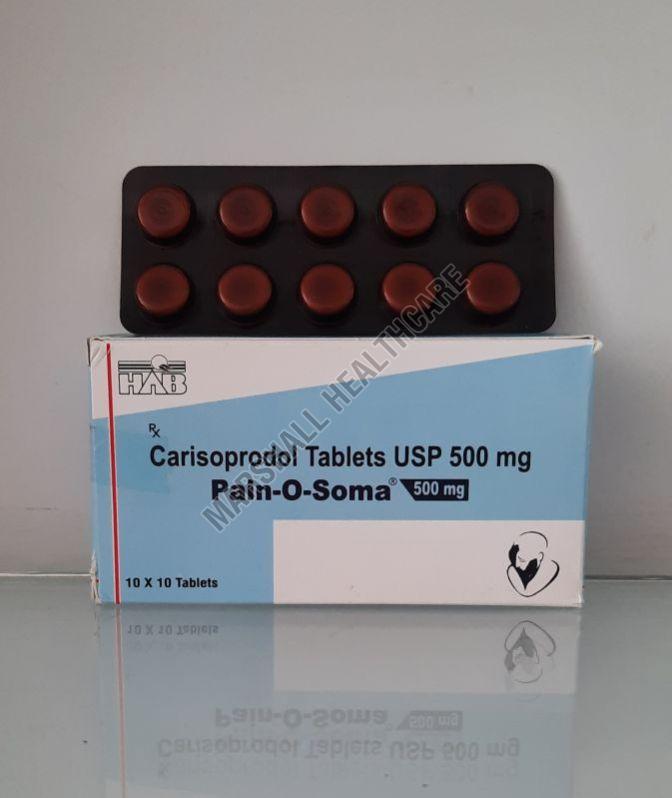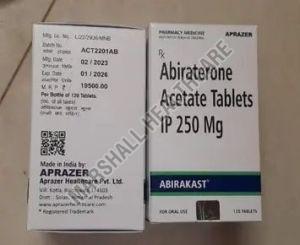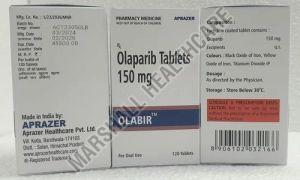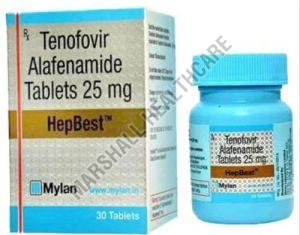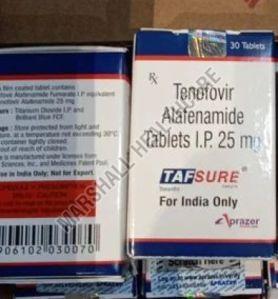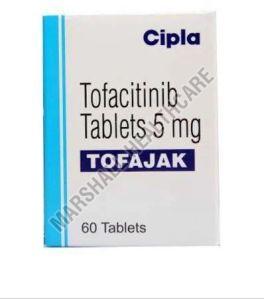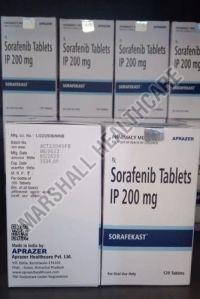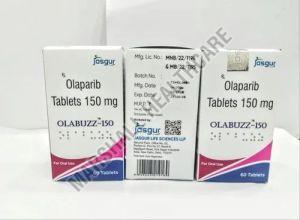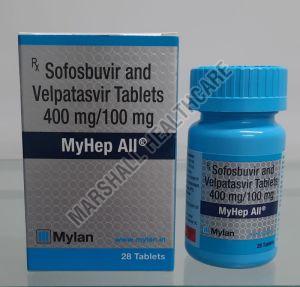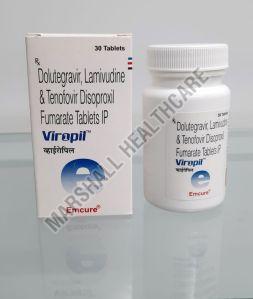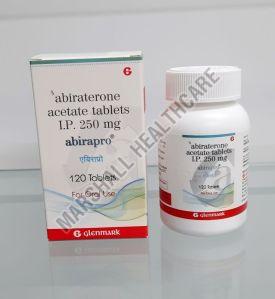Chandkheda, Ahmedabad, Gujarat
- GST NO. : 24CJWPK9058H1ZI
| Business Type | Exporter, Supplier, Trader, Distributor |
| Packaging Size | 10x10 Tablets |
| Country of Origin | India |
| Medicine Type | Allopathic |
| Click to view more | |
Product Details
Carisoprodol is a prescription medication used to relieve discomfort associated with acute, painful musculoskeletal conditions like strains and sprains. It is classified as a skeletal muscle relaxant.
Here is a description of Carisoprodol tablets, including common information about their use, side effects, and precautions:
Mechanism of Action
While the exact mechanism is not fully understood, Carisoprodol is a centrally-acting muscle relaxant. It works in the brain and nervous system to indirectly relax muscles. A key aspect of its function is that it is metabolized in the liver into meprobamate, a substance with sedative and anxiolytic properties. Meprobamate is believed to be responsible for both the therapeutic effects and the potential for abuse and dependence associated with Carisoprodol.
Indications
Carisoprodol is used as an adjunct to rest, physical therapy, and other measures to alleviate pain and discomfort from acute muscle injuries. It is generally recommended for short-term use, typically for a period of two to three weeks, as there is limited evidence of its effectiveness for more prolonged use.
Dosage and Administration
The typical adult dosage is 250 mg to 350 mg, taken three times a day and at bedtime. The maximum recommended daily dose is 1,400 mg. It can be taken with or without food.
Important Warnings and Precautions
-
Controlled Substance: Carisoprodol is a Schedule IV controlled substance due to its potential for abuse, misuse, and dependence. It should be used with caution, especially in patients with a history of substance abuse.
-
Sedation: Carisoprodol can cause drowsiness, dizziness, and decreased alertness. Patients should be advised to avoid driving or operating heavy machinery until they know how the medication affects them.
-
Drug Interactions: The sedative effects of Carisoprodol can be increased when taken with other central nervous system (CNS) depressants, including:
-
Alcohol
-
Benzodiazepines (e.g., alprazolam)
-
Opioids (e.g., oxycodone)
-
Tricyclic antidepressants (e.g., amitriptyline)
-
Sedating antihistamines
-
-
Withdrawal: Prolonged use can lead to physical dependence. Abrupt discontinuation may cause withdrawal symptoms such as insomnia, vomiting, tremors, and anxiety.
-
Medical Conditions: It should be used with caution in patients with liver or kidney disease and is contraindicated in individuals with a genetic enzyme disorder called porphyria.
Side Effects
Common side effects of Carisoprodol include:
-
Drowsiness
-
Dizziness
-
Headache
-
Upset stomach
-
Vomiting
Serious side effects, though less common, can include:
-
Seizures
-
Difficulty breathing
-
Allergic reactions (e.g., hives, swelling of the face)
-
Confusion
-
Hallucinations
In case of a severe reaction or overdose, immediate medical attention is necessary. Symptoms of overdose can include extreme sedation, coma, and respiratory depression.
Looking for "Carisoprodol Tablet 500mg" ?
Explore More Products


